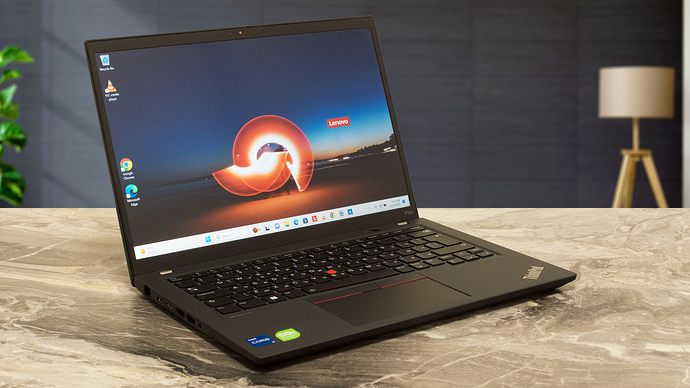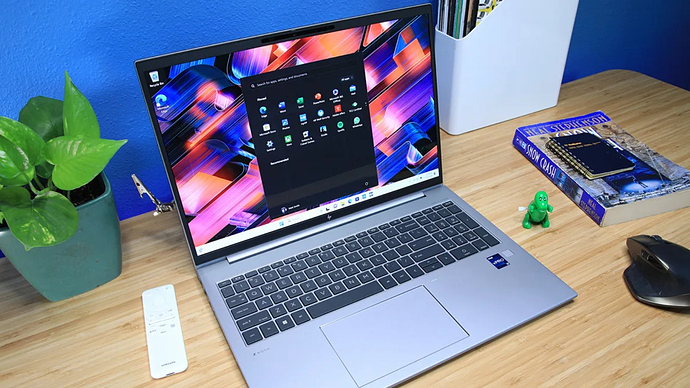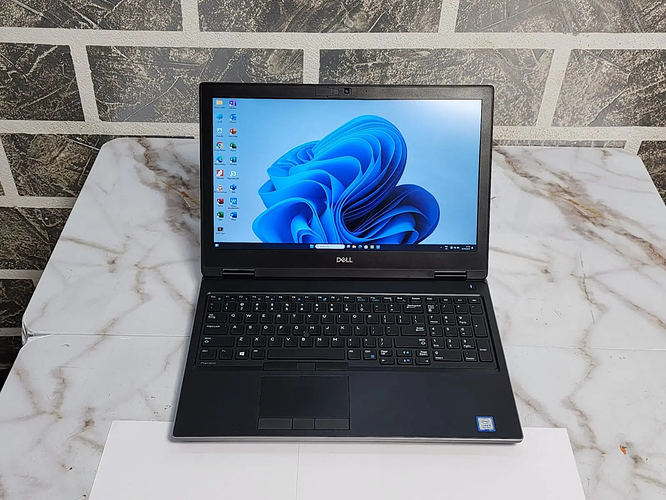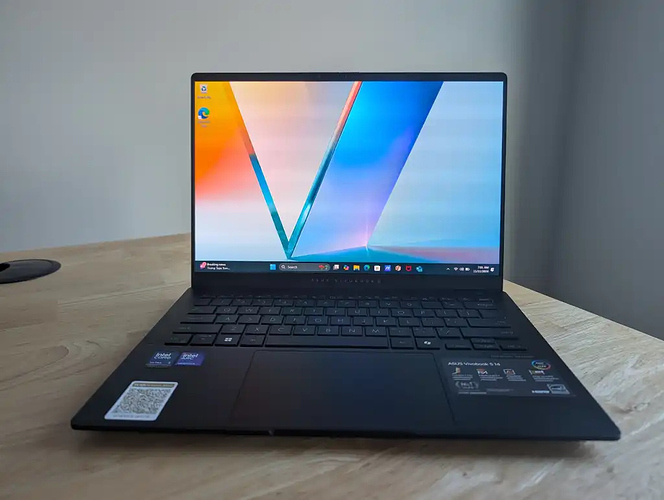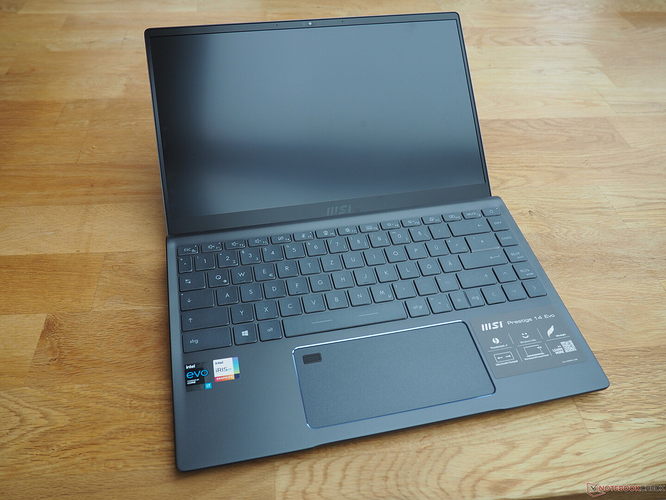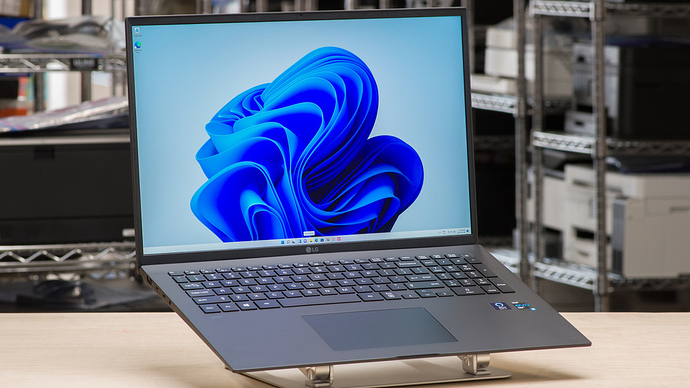Finding the best laptop for engineering students is a whole different ball game. Unlike casual users or even most other college students, engineering students need something that’s not just powerful but reliable and efficient enough to handle demanding software and heavy multitasking. We’re talking CAD applications, programming tools, simulation software, and everything in between. It’s a pretty tough order to fill.
Now, if you’re scoping out the market for your next machine, you’re probably overwhelmed by the endless options. But that’s exactly why we’ve done the heavy lifting for you. After testing, analyzing, and reviewing countless laptops, here are the best laptops for engineering students in 2025, designed to meet the unique needs of your coursework and projects.
1. Lenovo ThinkPad P14s Gen 5 — Best For Heavy-Duty Tasks
When you’re looking for a laptop that doesn’t flinch at running demanding software like CAD applications, MATLAB, and ANSYS, this one’s got you covered. With its powerful Intel Core i7 or AMD Ryzen Pro processors paired with up to 32GB of RAM, you’re looking at all the power you need for serious multitasking and heavy simulations. At around $1,815, you get a 14-inch display that delivers crisp visuals, making sure your intricate designs don’t lose their details. It’s not the lightest option on the market, but that’s a trade-off for durability and performance that makes it worth every dollar for complex engineering work.
2. HP Zbook Firefly G10 Mobile Workstation — Best For Professionals
Use If you’re bouncing between classes, labs, and study sessions, the HP Zbook Firefly G10 is a solid pick. For about $1,099, you get an Intel Core i7 processor, up to 32GB of RAM, and integrated graphics that handle most engineering software with ease. Its lightweight build and solid battery life make it perfect for students on the go. The Firefly G10 is especially practical if you need a budget-friendly workstation that can still tackle professional-grade tasks without making your backpack feel like a ton of bricks.
3. Dell Precision 7000 Mobile Workstation — Best For High-Performance
Heavy workloads don’t stand a chance against this beast. Priced at around $1,549, the Dell Precision 7000 packs some serious power with Intel Core i9 processors and Nvidia RTX GPUs, making it perfect for engineering students working on complex simulations, 3D modeling, and rendering. It’s a bit on the bulky side, but that’s the cost of having top-tier performance that can handle the most resource-intensive software. Plus, the reliable cooling system keeps everything running smoothly even when you’re pushing it to the max.
4. ASUS Vivobook S 14 OLED — Best For Portability
Not every engineering student needs a powerhouse. For those focused on design work or coding, the ASUS Vivobook S 14 OLED offers a stunning OLED display with fantastic color accuracy. Coming in at around $1,094, this laptop is powered by an AMD Ryzen 7 processor and Nvidia GeForce RTX 3050 graphics, making it a solid all-rounder. The lightweight build is convenient for slipping into your bag on the way to class, and the screen quality alone makes it an appealing choice for projects involving visuals or detailed schematics.
5. MSI Prestige 14 EVO — Best Budget-Friendly Option
Finding something that’s both affordable and powerful can feel like a needle in a haystack, but the MSI Prestige 14 EVO pulls it off. For around $899, you get a machine with an Intel Core i7 processor and Intel Iris Xe graphics that handles everyday engineering tasks without breaking a sweat. The battery life is solid, the build is lightweight, and it’s perfect if you need something portable that doesn’t skimp on performance. It’s not meant for high-level simulations or rendering, but for general use, it’s more than enough.
6. Lenovo ThinkPad X1 Carbon — Best For Multitasking
When productivity and build quality matter most, this one’s a go-to. At around $1,659, you’re getting a durable design packed with an Intel Core i7 processor and up to 32GB of RAM. Multitasking is a breeze, and its 14-inch display makes coding, designing, or working through complex calculations feel like less of a chore. The keyboard feels amazing to type on, which is a huge bonus when you’re pounding out long reports or coding sessions. It’s the kind of laptop that can handle pretty much anything you throw at it.
7. LG gram 17” — Best For Massive Display
Not many laptops can offer a huge 17-inch display without feeling like a workout to carry. That’s where the LG gram 17” comes in. For around $1,699, it delivers a spacious screen that’s perfect for multitasking, designing, or working with complex diagrams. And somehow, despite its size, it stays under 3 pounds. Add in an Intel Core i7 processor and up to 16GB of RAM, and you’ve got a machine that’s practical for those who need a big screen without compromising portability. Battery life is impressive too, so you don’t have to be glued to an outlet while you work.
Final Thoughts
Choosing the Right Laptop Choosing the best laptop for engineering students in 2025 comes down to understanding your own needs and preferences. If you’re deep into CAD modeling or rendering, a more powerful machine like the Dell Precision 7000 or Lenovo ThinkPad P14s Gen 5 is your best bet. For more casual engineering work or general productivity, something like the ASUS Vivobook S 14 OLED or MSI Prestige 14 EVO will do the job just fine.
No matter which route you go, make sure the laptop you pick has enough processing power, decent battery life, and solid build quality. Engineering coursework is demanding, and you’ll want a machine that’s built to keep up.

